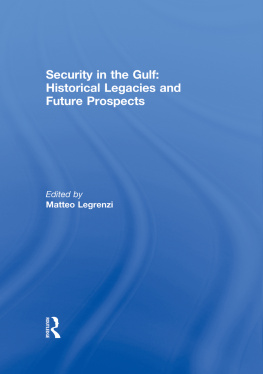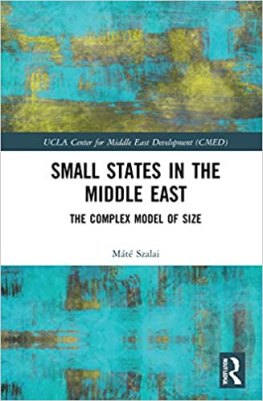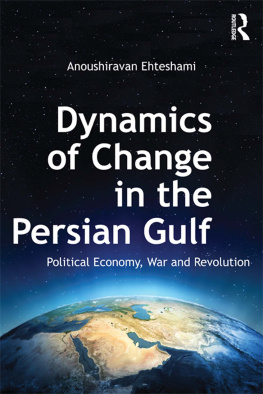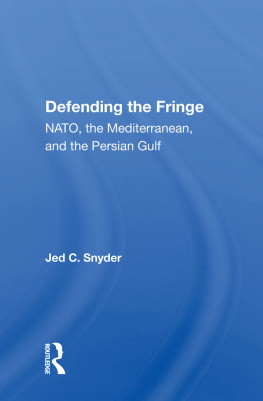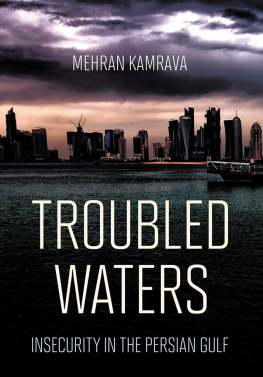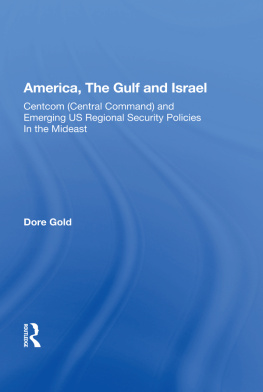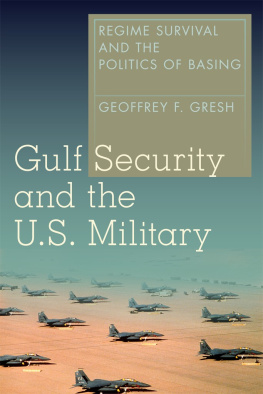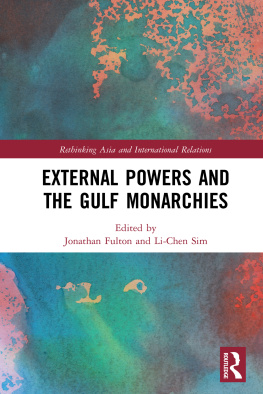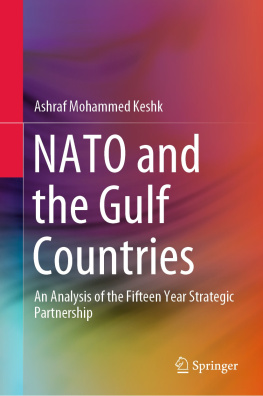Security in the Gulf: Historical Legacies and Future Prospects
This book examines Gulf security in a holistic way seeing past the narrow military aspect and also trying to debunk the conventional narratives propagated by regional and external actors. In particular, the emphasis is on the historical legacy of Gulf security and the fundamental domestic and international vulnerabilities of the various states in the region. This approach proves important in light of the recent efforts by Gulf states to recast their position in the international arena trying to peddle an image of self-assertiveness and autonomy in the security sphere. These new diplomatic stances do not seem to be borne out by their current security policies that are marked by apparent continuity with past practices. In particular, the new Gulf-Asia nexus and the claims by Gulf monarchies that regional confidence building measures are appearing on the horizon are placed under critical scrutiny. This is done by a sobering examination of the balance of threat in the region, the historical amity/enmity patterns and the evolving American stance.
A shorter version of this book was previously published as a special issue of the British Journal of Middle Eastern Studies.
Matteo Legrenzi is Assistant Professor at the Graduate School of Public and International Affairs of the University of Ottawa. He has published articles on the GCC and on the international relations of the Gulf. He is co-editor of Beyond Regionalism? Regional Cooperation, Regionalism and Regionalization in the Middle East and the author of the forthcoming The GCC and the International Relations of the Gulf: Diplomacy, Security and Economy Co-ordination in a Changing Middle East.
This book has assembled many of the top analysts in Gulf security to address the complex and interdependent threats facing this volatile region. The analysis presented in these pages by these outstanding scholars should be required reading for academics, security policy professionals, and researchers, seeking to deconstruct the veils of complexity that complicate our attempts to understand this important region. James A. Russell, Associate Professor, Naval Postgraduate School
A diverse and thoughtful collection of essays on the fundamentals of Gulf security. Separating myth from reality and challenging conventional stereotypes, this volume offers an informed and balanced analysis of the region's security architecture before and after 9/11.
Louise Fawcett, CUF University Lecturer in Politics, Oxford University
Security in the Gulf: Historical Legacies and Future Prospects
Edited by
Matteo Legrenzi
First published 2011
by Routledge
2 Park Square, Milton Park, Abingdon, Oxon, OX14 4RN
Simultaneously published in the USA and Canada
by Routledge
711 Third Avenue, New York, NY 10017
Routledge is an imprint of the Taylor & Francis Group, an informa business
First issued in paperback 2013
2011 British Society for Middle East Studies
This book is a reproduction of the British Journal of Middle Eastern Studies, vol. 36, issue 3. The Publisher requests to those authors who may be citing this book to state, also, the bibliographical details of the special issue on which the book was based.
Typeset in Times New Roman by Taylor & Francis Books
All rights reserved. No part of this book may be reprinted or reproduced or utilised in any form or by any electronic, mechanical, or other means, now known or hereafter invented, including photocopying and recording, or in any information storage or retrieval system, without permission in writing from the publishers.
British Library Cataloguing in Publication Data
A catalogue record for this book is available from the British Library
ISBN13: 978-0-415-58776-1 (hbk)
ISBN13: 978-0-415-85052-0 (pbk)
Disclaimer
The publisher would like to make readers aware that the chapters in this book are referred to as articles as they had been in the special issue. The publisher accepts responsibility for any inconsistencies that may have arisen in the course of preparing this volume for print.
To Yossi: he genuinely bridged cultures
Contents
Matteo Legrenzi
Fred H. Lawson
Patrick Conge and Gwenn Okruhlik
Mary Ann Ttreault
Thomas Hegghammer
Joseph Kostiner
Christopher M. Davidson
Ibrahim Al-Marashi
Arshin Adib-Moghaddam
MATTEO LEGRENZI
This book examines Gulf security in a holistic way, looking past the narrow military components and challenging the conventional narratives that have been propagated by regional and external actors. In particular, the emphasis is on the historical legacies of regional security and the fundamental domestic and international vulnerabilities of various states in the Gulf.
This exercise proves particularly important in light of recent efforts by some Gulf states to recast their position in the international arena by promoting an image of self-assertiveness and autonomy in the security sphere. These new postures do not seem to be borne out by crucial elements of their respective security policies, which are marked by significant continuities with past practices. In particular, the widely heralded Gulf-Asia security nexus and the prospect of confidence-building measures emanating from Gulf monarchies vis--vis Iran have yet to materialise. Proponents of a new security architecture in the Gulf will benefit by the sobering examinations of the balance of threats in the region, historical patterns of amity and enmity, and evolving American stance that are presented in this book.
Primary emphasis has been placed on the fundamentals of Gulf security and how these may or may not have changed in the aftermath of 11 September. Authors have been asked to assess whether these fundamentals were in any way altered by the momentous events of that day, and to reflect on the changed role of the United States in the regionits gradual shift from over the horizon balancer to local player with an imposing physical presence. In contrast to what is often hoped for, or feared, on the two shores of the Gulf, the United States is becoming more deeply ensconced in the region. Decisions in Washington are increasingly taken in the name of force protection, which do not register on the political radar screen. By taking into consideration the historical legacies of Gulf security, contributors here have been able to escape the here and now fallacies of much of the literature emanating from both regional and global think tanks.
Above all, the contributors to this collection have approached the subject of regional security from the point of view of their respective academic disciplines. Their essays offer insight into a subject that is all too often treated in impressionistic terms. Much can ultimately be gained by simply asking the same questions of the Gulf security complex that are routinely asked of other security complexes around the world, thereby eschewing the twin evils of sycophantic self-censorship and blanket vilification.
Acknowledgements
The editor gratefully acknowledges the support of the Centre for International Policy Studies at the University of Ottawa, the Centre for International Governance Innovation in Waterloo, Canada and the Security and Defence Forum of the Canadian Department of National Defence. Professor F. Gregory Gause III of the University of Vermont and Professor Bessma Momani of the University of Waterloo were exemplary discussants at our pre-publication workshop in Ottawa in December 2008. Professor Nicola Pratt of the University of Warwick made sure the project was completed in time. Finally, special thanks go to Lama Mourad, my formidable research assistant, as she embarks on what will certainly be a distinguished scholarly career: without her, this volume would never have seen the light of day.

